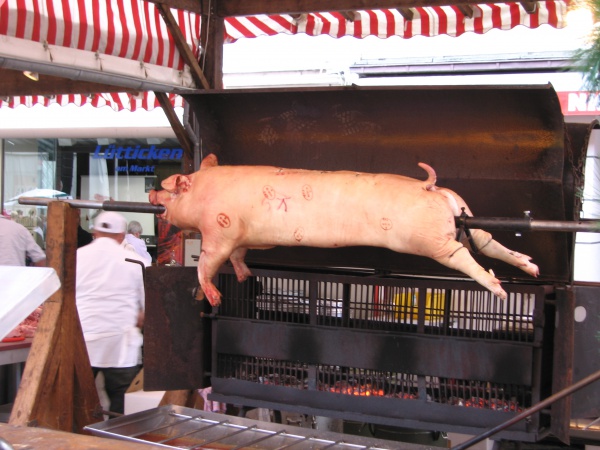Facts About Pig roast
A pig roast, also known as a hog roast, is a festive culinary event where a whole pig is barbecued. This delectable tradition spans multiple cultures and regions worldwide, including the Philippines, Puerto Rico, Cuba, Hawaii, the Deep South in the United States, the Balkan countries, and Southeast Asia.
Each region has developed its own distinctive methods of roasting a pig. In Brazil, the dish is known as "leitoa a pururuca" while in China, roast suckling pig is a highlight of special occasions. In Indonesia, "babi guling" is particularly popular in non-Muslim majority areas. The Philippines, Puerto Rico, and the UK also boast unique pig roasting traditions.
In the U.S., particularly in the Southern states, roasting a whole pig has been a cherished tradition for over two centuries, deeply embedded in barbecue culture. The methods vary, from open-fire rotisserie style to box grilling, reflecting regional and cultural preferences.
The cooking process typically involves splitting and grilling a dressed pig on a large charcoal or propane grill. In Hawaii, the pig is roasted in an earth oven called an "imu" lined with banana leaves and hot lava rocks. For an American Cuban-style pig roast, a special roasting box known as "caja china" is often used.
Pig roasts are more than just a culinary delight; they are cultural and social gatherings that bring families and communities together to celebrate special occasions and long-standing traditions.
